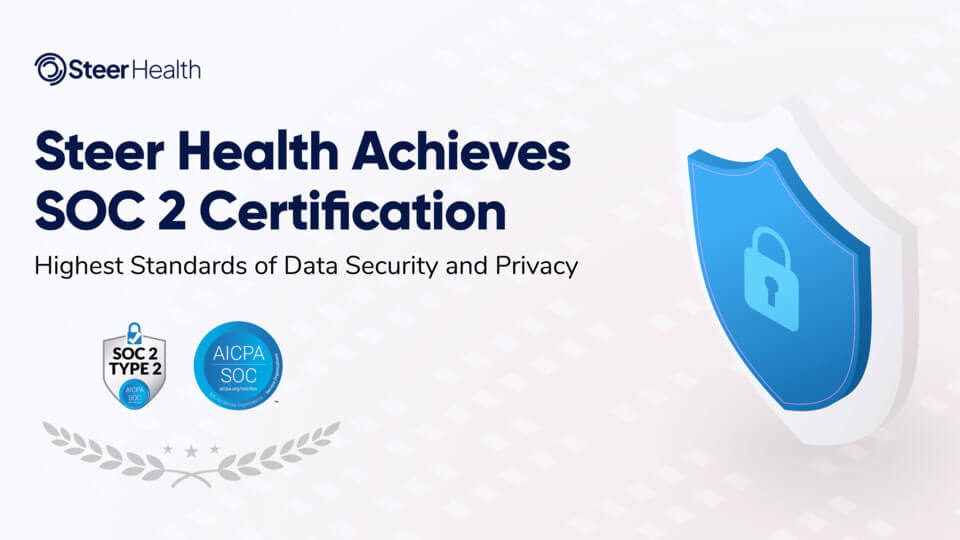Visit blog.steerhealth.io for our top stories and breaking news. First time seeing this? Please subscribe.
Don’t miss these other stories:
- Learn how hospitals and healthcare organizations can improve clinician experiences and combat high staff turnover by downloading our clinician experience report.
- Come meet the Steer team at AAOS 2024! Join us for a powerful week of education, innovation, and collaboration with the global orthopaedic community.
AAOS Spotlight: Challenges ASCs Face and How AI and Automation Help to Solve Them
With the American Academy of Orthopaedic Surgeons (AAOS) annual meeting coming up, it’s time for surgical practices and surgeons to reflect on the state of the industry.
Outsourcing planned surgeries from hospitals to dedicated surgical centers offers numerous benefits to patients and payers: lower costs, greater efficiency, and better surgical outcomes, to name a few.
Thanks to these benefits, ASCs are experiencing significant growth in patient demand. A 2023 Sg2 report predicted ASCs to see a 12% growth over the next five years and a 22% growth over the next 10.
But the growing demand is not without its challenges. Like the healthcare industry as a whole, ASCs are facing rising costs and supply chain barriers and must adapt to patients’ growing appetite for retail-like services.
The good news is: By adopting growth strategies and investing in new technology like AI, ASCs can navigate the stormy waters and turn hurdles into opportunities.
Let’s explore the top three challenges ASCs face today and delve into how AI and automation can help to overcome them.
Challenge: Healthcare costs are rising
The cost of medical care globally reached a historic high in 2023, climbing into the double digits for the first time, according to a WTW medical trends survey. Global healthcare costs are expected to rise by 9.9% in 2024.
Ambulatory Surgery Centers (ASCs) are facilities that provide cost-effective services in a convenient and less stressful environment than many hospitals.
But a comprehensive 2022 analysis of 380 ASCs revealed that operating expenses constituted a significant 76.8% of net operating revenue, highlighting a precarious financial balance. Additionally, the median operating costs for all examined facilities stood at $6.9 million, a considerable figure in comparison to hospitals.
Solution: Make the cost-effective choice
The areas where operations can experience the greatest optimization are patient scheduling and wait times. Many ASCs lack current technologies when it comes to scheduling patient surgeries. By introducing modernized appointment scheduling, ACSs could see 43% in cost savings.
Streamlining workflows enhances operational efficiencies by eliminating redundancies, delays, and unnecessary steps, resulting in potential resource savings. Technology such as artificial intelligence (AI)can automate labor-intensive processes and create a space where accurate and relevant data can freely flow through all channels of your organization.
For example, Steer Health’s smart slot optimization technology eliminates the need to manually review appointments and surgeons’ availability and experience automation from patient appointment schedule to intake.
On our online forms, patients complete personal details and provide updated information on their insurance status, medical history, and various other details. By eliminating the need for a dedicated staff member to handle patient registration, your organization will save hours of staff time in just a day.
Challenge: Increased demand, more workflow challenges
ASC leaders continue to see increased surgical volumes, according to a 2023 OR Manager Salary/Career Survey. A notable 56% of respondents reported an increase in volume over the past 12 months, maintaining the same trend as the previous year.
While the goal of a successful organization is to draw in large numbers of patients, the tasks of managing patient communication consume significant hours of staff time. Patients call at all hours of the day to schedule and confirm appointments, make payments, update insurance, etc.
The major growth in ASCs year-over-year adds to the staff workload and strains the existing workforce.
Solution: Conversational AI chatbots help streamline workflow
ASCs must implement effective strategies for managing high call volumes. A viable solution is conversational AI chatbots. As per an IBM report, these chatbots can address 80% of generic questions, allowing your agents to focus their efforts on more critical tasks.
AI-powered chatbots can help automate routine tasks thereby freeing up staff for more complex tasks, reducing manual effort, time spent, and manual errors.
Steer Health’s HIPAA-compliant AI chatbot helps healthcare organizations reduce operational costs, manage staff turnover, and mitigate the challenges associated with scaling support in line with patient demand.
Our self-service technology lives on your website 24/7 to respond to your patients immediately. Its proactive and personalized prompts can help patients choose between common queries, book an appointment, or find directions. And, it’s all automated.
Challenge: ASCs face staffing shortage and burnout
ASC staffing has become one of the biggest challenges for owners. The New England Journal of Medicine (NEJM) describes burnout as the staff’s “moral injury from being unable to provide the care patients need.”
A VMG Health’s Multi-Specialty ASC Benchmarking Study reported that ASCs spend about 21.3% of net revenue on employee salaries and wages. Experts agree that staff shortages will continue to challenge these fixed costs and, ultimately, profits as hospitals and health systems vie for the same talent that ASCs require.
Solution: Boost the efficiency of care navigation
Part of care navigation is when the medical team visits each inpatient to see how they are feeling and monitor progress. However, an NIH study found that completing priorities, limited time, and the workload in medical-surgical units interfere with consistent patient care.
Enhancing the efficiency of care navigation is a crucial stride toward delivering optimal care. These rounds play a pivotal role in patient care by enabling the collection of feedback, assessing individual needs, and ensuring the delivery of personalized care.
Steer Health launched the Steer Concierge Platform to increase hospital patient communication via digital rounding software.
The platform aims to solve time-consuming hospital rounding experiences by automating manual paper rounds. Intelligent automation technology allows patients to submit inquiries to dedicated hospital staff and receive personalized assistance without waiting for staff members to come by.
In summary, the chances of positive growth for ASCs in 2024 are good, but only if they invest in the right tools and strategies to meet the growing challenges of patient demand and staff management.
Our team will be discussing these and other topics at the upcoming AAOS Annual Meeting. Are you coming to the AAOS? Schedule a meeting with us and learn how we can help you grow your practice and free up your staff.
Schedule a meeting at the AAOS Annual Meeting from February 12 to 16, and connect with us at our booth 6676









